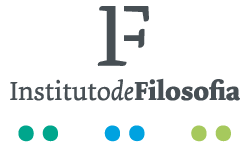Aristotelica Portugalensia. The Reception of Aristotle in Portugal until the XVIII Century
Since its earliest translations into Latin in the middle of the XII century, the works of Aristotle were at the origin of a decisive inflection in philosophical and scientific European thought. All through four centuries of either enthusiastic or polemical assimilation, largely achieved through philosophical commentaries, European philosophy was chiefly based on Aristotelianism (or rather, on a huge variety of different sorts of Aristotelianisms). Indeed, Aristotle became the philosopher by antonomasia. Nonetheless, despite the density of that assimilation, his theories gave often rise to further discussions, due either to the identification of methodological limitations in Aristotle’s philosophy or to the detection of problematic points in the solution advanced for certain physical or philosophical problems.
General Objectives
Analysis of the dissemination of Aristotle’s works and its influence in Portugal from the XII century on (inseparable from the history of the Aristotelianism’s reception in the rest of Europe) will provide:
- the reconstruction of the history of thought in areas which were decisive for modernity, such as logics and gnosiology, metaphysics and physics;
- a fuller and deeper account of the most representative authors; their academic careers, works and influence;
- an understanding of the relationship between the production of philosophical texts and its institutional framework, i.e. the university, where transmission and, in many cases, the reification of Aristotelian thought took place;
- a study in depth of the literature produced in vulgar language, as the origin of the constitution of the philosophical vocabulary in Portuguese;
- the possibility to grasp the dissemination of the works (manuscripts and printed) after the XV century;
- a study on the Late Portuguese Scholasticism and on the Post-Reformation thought, to better understand the entrance of philosophy in Brazil after the XVI century;
- an understanding of either the dialogue or opposition or dependence of the medieval Aristotelianisms and Peripateticisms in regard to other schools such as Neo-Platonism, Scepticism, Stoicism, etc;
- an understanding of the expression and contribution of the different sorts of medieval Aristotelianisms (Thomism, Scotism, Ockhamism, etc.) in the beginning of modernity.
Related projects
Animal rationale mortale, PI Paula Oliveira e Silba
Iberian Scholastic Philosophy, PI José Meirinhos
Petrus Hispanus, PI José Meirinhos
